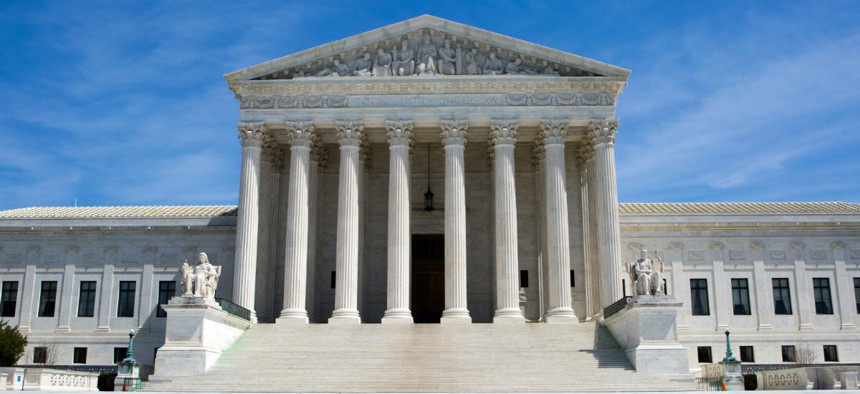Federal Unions Support Request for Supreme Court Review of Denied MSPB Case Appeals
Three feds were denied lower court appeals based on allegedly erroneous deadlines.
Officials with the National Treasury Employees Union announced Tuesday that they have filed friend-of-the-court briefs on behalf of three federal employees asking the Supreme Court to review their appeals of Merit Systems Protection Board cases.
In each of the three cases, the U.S. Court of Appeals for the Federal Circuit dismissed the employee’s appeal on the grounds that the employee missed a filing deadline. But NTEU National President Tony Reardon said those dismissals were improper, because the employees made every effort to comply with the deadline.
In the cases of Vocke v. MSPB and Fedora v. MSPB, the employees “followed guidance issued by the court in its own Guide for Pro Se Petitioners,” NTEU said in its amicus brief, but they were denied on the basis of erroneous instructions by the court. The American Federation of Government Employees also filed a brief in both cases.
On May 2, 2016, the MSPB dismissed a whistleblower retaliation complaint by Commerce Department employee Robert Vocke. Vocke received that decision on May 11, and although he submitted his appeal within 60 days of receiving the decision, in accordance with the U.S. Court of Appeals’ instructions for petitioners, the court ruled that he missed the deadline because it was received by the court 66 days after the decision was first issued.
Similarly, U.S. Postal Service employee Lawrence Fedora, who appealed his dismissal as a mail handler, was ruled to have missed the deadline to file his own appeal of an MSPB decision because he filed within 60 days of receiving the board’s decision, rather than within 60 days of when it was first issued.
At the time of these decisions, the court’s instructions for MSPB appeals stated: “you may file a petition for review in this court within 60 days of receipt of the board’s decision.” As of Dec. 1, 2016, the passage was revised to read, “you may file a petition for review in this court within 60 days after the date on which the Board issued notice of that decision.”
In the case of Jeffery Musselman, a 20-year veteran and civilian Army employee who alleged he was demoted for whistleblower disclosures to management, he sent the appeal of his MSPB decision 13 days ahead of the filing deadline, but it did not arrive at the court for 16 days.
In their briefs, NTEU and AFGE both argued that these cases should be subject to a legal concept called “equitable tolling,” wherein a deadline for filing a claim or appeal should not bar individuals from being heard, provided they can show that they exercised due diligence in attempting to file the appeal on time.
“These cases are about protecting all federal employees—including whistleblowers—from retaliation or otherwise illegal personnel actions,” Reardon said in a statement. “The law says they have the right to federal court review of these actions. When their paperwork is late because of someone else's mistakes, the court can and should excuse the tardiness.”
The deadline for filings in the Vocke and Fedora cases is Dec. 13, and the deadline in Musselman v. Department of the Army is Dec. 15.
NEXT STORY: Play of the Day: Trump Pardons Some Turkeys








